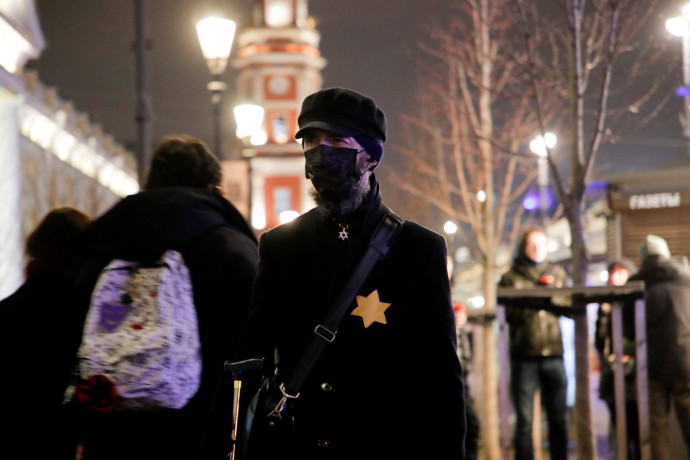With Russian authorities’ moves to close the Jewish Agency and recent attacks from Russian officials against the Jewish community, Israel’s ability to sit on the fence about the war in Ukraine is diminishing. Israel’s next steps will directly affect the personal security of the Russian Jewish community and also the security map in the Middle East.
The incoming government must provide a clear strategy in relation to the war and the refugees. Will the government respond to Russian aggression with sanctions against the Russian government? Should the government prepare for a large-scale absorption of the refugees from both countries?
After more than half a year since the beginning of the Russian campaign in Ukraine, the face of Europe has changed, and is now dealing with refugees not seen since World War II. Nearly 15 million residents of Ukraine were displaced from their homes because of the war, and about 6.7 million fled their country and dispersed to other countries.

Since the actions to close the Jewish Agency in Russia and Russian President Vladimir Putin’s announcement of a military draft, there has been a significant acceleration in the number of Jewish immigrants to Israel, with the understanding that the Iron Curtain is slowly coming down again on the citizens of Russia. We, the Conference of European Rabbis, also mobilized for the Jews in Ukraine and Russia and provided shelter, food, clothing and assistance for Ukrainian refugees, in host countries such as Poland, Romania, Hungary, Germany and Israel.
Faced with these dangers, Israel’s new government will have to express a clear position that will include concrete actions in the conflict and not just condemnations or expressions of solidarity from afar. When Aleksey Pavlov, secretary of the Security Council of Russia, published a document that claimed that “Chabad activity is nothing less than satanic,” the Israeli government should have responded strongly.
We must remember that Russia has no fewer interests in Jerusalem than Israel has in Moscow. When the Russian government creates difficulties for the Jewish way of life in Russia, the Israeli government has enough levers of pressure to respond to the attacks against Russia’s Jews, by placing sanctions against the Russian interests in Jerusalem. It is clear to everyone that Israel also has the option of responding in a completely different way, which will affect the war in Ukraine.
Anyone who knows the particulars of the Jewish community in Russia knows that there is a clear trend on the part of the Russian government to restrict Jewish education in the country, and the State of Israel must respond to this.
The State of Israel, meanwhile, has clear strategic considerations vis-à-vis Russia that affect its room for maneuver in Lebanon and Syria; the power of ambiguity as strategy is clear here. But as the Russian aggression mounts against both the diaspora Jewish community and the national interests of Israel, the status quo is no longer sustainable.
Additionally, the incoming government must create an organized initiative for refugees from Ukraine and Russia, one that would buy them a bright and clear future in the Land of Israel. According to official estimates, about 75,000 members of the Jewish community from Russia have already left the country, and at least 25,000 Russian Jews have arrived in Israel. Tens of thousands moved to countries in the region and have not come to Israel. As time passes, the Iron Curtain descends across Russia, and the opportunity for the Jewish community to leave shrinks.
The State of Israel must use all its resources to untie bureaucratic cables in the reception of olim from Russia. The State must urgently move to ease the way for new immigrants to open bank accounts and move their assets from Russia, and ease the bureaucratic procedures and waiting times related to the processes of confirming the Jewish identity of the immigrants, so that they can pick up the pieces and start a new life in the State of Israel
Now, more than ever, the Jewish communities in Europe need to hear a clear and distinct voice from the Israeli government.
This is an issue of strategic importance to the State of Israel, which should be handled directly by the incoming Prime Minister in Jerusalem.
Rabbi Pinchas Goldschmidt is the President of the Conference of Rabbis of Europe. He served as the chief rabbi of Moscow in the years 1993-2022.
